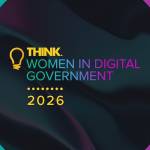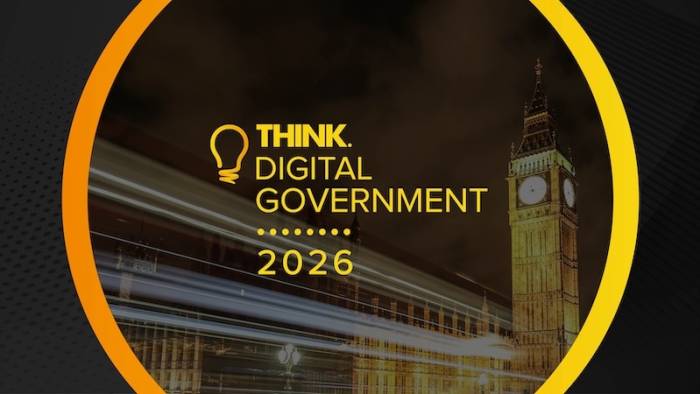Did you enjoy school?
I loved school and spent a lot of time in the library studying. My friends were smart and motivated, so I had to work hard to keep up. The experience taught me determination and perseverance can get you a long way.

What qualifications do you have?
I have a degree in history – surprisingly helpful in this career – some rusty web development certificates, and a solid foundation in project management from my time in the civil service.
Has your career been a smooth transition, a rocky road or a combination of both?
It’s been mostly smooth, but I always look to challenge myself. I try to make career moves that stretch me and avoid getting too comfortable, considering not just the opportunity itself, but whether it opens new doors for me.
After university, I taught English in Beijing with no prior experience. Although I didn’t universally enjoy it – and after six months I headed off backpacking, a challenge in itself in the pre-smartphone era – the role was a great way to build resilience and shook off my fear of public speaking. If you can manage a class of forty teenagers, everything else feels easier.
What specific challenges do you see women facing in the industry?
Sadly, sexism runs deep. It’s still common to be in all-male rooms, although I have found this less frequent as my career has progressed. I remember attending a training session years ago, before I started here, where I was the only woman in the room, and the men assumed I was there to make the tea! That’s just not something our male peers have to face.
In general, I think women unfortunately do need an extra layer of resilience and self-belief to navigate these challenges. But I’m optimistic: there are so many opportunities in our industry right now, and no reason at all that women can’t succeed.
At Public Digital, we have a majority female workforce, which is rare in this space, and we’ve grown a positive environment with no barriers to progression.
What is the best career advice that you can give to others?
Firstly, you have more power than you think. If you’re ambitious for yourself and your career then ask for what you want, put yourself forward and take on work that challenges you.
Secondly, build relationships. Success is a team sport, and you can’t do it alone. You need allies, mentors and people that you can have a laugh with – that’s really important.
Finally, don’t stay in a workplace that makes you feel small. The impact of that takes a really long time to shake off and it’s not worth it. If you’re in that place, it isn’t failing if you decide to move on.
If you had to pick one mentor that had the biggest influence on you, who would it be?
I couldn’t name just one person. When I started my career in the UK Civil Service fast stream, I received incredible support from so many people. Looking back, I’m even more grateful for the time, investment, and enthusiasm they put into my development. Everyone I met in that role has had a huge impact on my career. It was amazing – having regular meetings with mentors and CIOs, weekly check-ins to discuss challenges, and plenty of training. That kind of support is rare in most jobs.
Where do you draw your inspiration?
I’m an avid podcast listener and have a shelf full of business books, I can’t resist them. If you name a leadership book, I’ve probably bought it and have it half-read on my shelf at home.
I like podcasts because they challenge my thinking and help me learn things from other organisations that I can implement myself. Right now, Rory Stewart is at the top of my list. I also enjoy Lenny’s Podcast, which started as product management but now covers all sorts of tech and business topics.
If you liked this content…
What is the biggest challenge that you have faced to date?
I’ve had a few jobs that weren’t the right fit. It’s tough when you’re putting in effort and trying to staying authentic to yourself but things still aren’t working – it can make you question if you’re the problem. I have come to realise that sometimes it is a matter of fit, not failure.
Recognising when something isn’t working, being okay with it, and moving on is a tough but important skill. Sometimes you just have to trust your gut.
What qualities do you feel make a good leader?
I’m lucky that at Public Digital I work with incredible, self-motivated people who truly want to make a difference. In that context, I think a good leader needs to listen, establish trust, and build mutual respect. Once you have that, everything else follows.
What has the last 12 months been like?
It’s been challenging and diverse. I stepped up to the role of MD six months ago during a time of growth for the company. It’s been exciting to help the company adapt, but I’ve had to learn a lot and adjust my approach. The way that I achieved success in my previous role just won’t work in my new position as MD, so I’m still learning how to adapt.
What would you say are the biggest tech-based challenges that we face today?
The biggest challenge we see is managing the gap between the high expectations of leaders and the reality of their existing tech infrastructure. We often work with organisations that have relied on the same IT systems for 20-30 years – systems understood by only a few people in the business who are probably nearing retirement! – while current leadership wants to leap straight into cutting-edge technologies like AI.
By organisations, I mean government bodies as well as large, well-established companies – especially those founded before the internet era. Right now, at Public Digital, we find we’re working with organisations that have a digital mindset but an analogue infrastructure.
The key is getting the basics right before moving on to new tech. It’s not possible to leapfrog over building those foundations.
I recently met two leaders, one in British Columbia and the other in the Dominican Republic, who both said they want all government services accessible in their citizens’ hands. It’s a great vision of course, but the reality of making that happen is a decade’s work, not a quick fix.
What can be done to encourage more women into the industry in your opinion?
I think it’s important to not just bring women in, but to keep them. Offering flexible working, equal pay, and sponsorship to elevate women into leadership roles is key to their success.
From my experience, it’s not just a tech industry issue, but a leadership issue. Women often get mentorship, but they need sponsorship – someone higher up to advocate for them and help elevate them. Men tend to have more of these sponsors from relationships stereotypically founded in informal settings, like playing golf or chatting about football at the pub.
In some places, there’s still a legacy of male dominance and sexism that gets in the way. I’ve dealt with clients who are openly sexist and prefer working with male consultants, which is frustrating. That said, things have improved a lot since I began my career.
Positively, there are so many careers connected to tech now, and we need to do a better job showcasing the diversity our industry can offer. It’s not just about being behind a keyboard anymore. It’s a broad, rewarding field with so many opportunities, and there’s no reason why women can’t thrive in it. The idea that it’s only for “tech bros” is outdated.
Give us a fact about you that most other people wouldn’t know.
I used to say I spoke a bit of Mandarin, but I haven’t tested it in so long, I’ve had to let that one go. After Covid I got really into strength training and weightlifting – it really feels like a superpower. I carve out time every week to train, and I find it’s great for de-stressing and clearing my mind. I highly recommend it to anyone!











